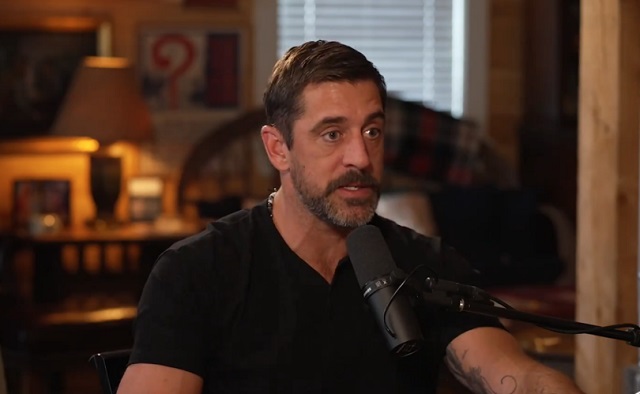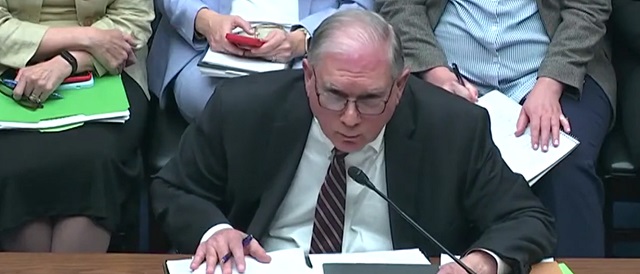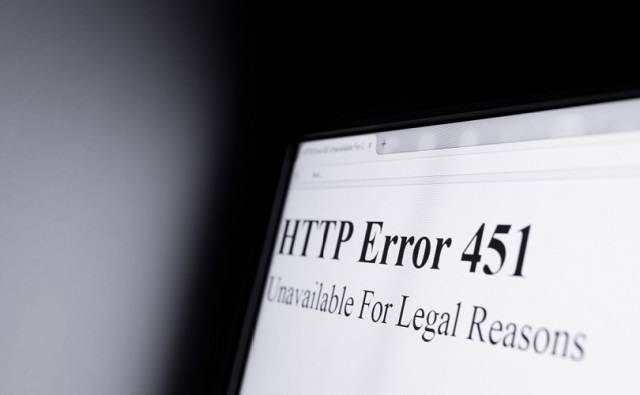News
Province to modernize Gaming and Liquor Act prior to cannabis legalization

Minister Ganley and Minister Ceci are joined by Alain Maisonneuve, president and CEO, Alberta Gaming and Liquor Commission (AGLC) to discuss cannabis legalization and amendments to the Gaming and Liquor Act.
Updating legislation to prepare for legal cannabis
Albertans’ health and safety will be top priority as the province looks to modernize the Gaming and Liquor Act before cannabis is legalized by the federal government.
The amendments would give the Alberta Gaming and Liquor Commission (AGLC) the tools necessary to oversee and enforce Alberta’s new cannabis market in advance of cannabis legalization, expected this summer.
“We remain focused on building a system for legal cannabis that prioritizes the safety and security of all Albertans. These amendments to the Gaming and Liquor Act represent another step in our continued work to prepare for the legalization of cannabis.”
Kathleen Ganley, Minister of Justice and Solicitor General
The updates, which include increased fines and naming restrictions, would help to further protect public health, keep cannabis out of the hands of children and limit the illegal market.
“Restricting how cannabis retailers name their stores and products is an important step in protecting public health. Stores that will sell cannabis for recreational use are not pharmacies, nor will they have professional oversight from pharmacy practitioners. The Alberta College of Pharmacists supports this legislation.”
Greg Eberhart, registrar, Alberta College of Pharmacists
If passed, the proposed amendments would:
- Prohibit naming and branding cannabis retailers and products with terms and symbols that have medical connotations such as “therapeutic” or “medicinal.”
- Increase the maximum administrative fines for infractions of the Gaming and Liquor Act and regulation from $200,000 to $1 million.
- Allow a court to rely on a law enforcement officer’s ability to infer that a product is cannabis based on its packaging, labelling or smell, for the purposes of offenses under this act, mirroring the current practice for alcohol and tobacco.
- Create an offence to enable enforcement against an owner or operator of a premises who allows smoking or vaping of cannabis where it is prohibited, similar to existing rules for alcohol and tobacco.
- Enable the legal blending and infusion of liquor products in an effort to modernize liquor policies.
The proposed changes would also provide new opportunities within the liquor industry, including ferment-on-premises. This would allow consumers to make their own beer, wine, ciders and coolers within licensed facilities.
“Our government has worked to eliminate unnecessary regulation that negatively impacts our restaurant and bar industry. Ferment-on-premises and blending of liquor products represent common sense changes that open new revenue streams for business and allows Albertans another way to responsibly enjoy themselves.”
Joe Ceci, President of Treasury Board and Minister of Finance
“This is something that my customers have been asking for years. I am pleased to see action being taken to allow ferment-on-premises in Alberta. I look forward to expanding my business in the future to offer this service.”
Al Henderson, Creative Connoisseur Inc.
International
Julian Assange wins right to appeal extradition to US, remains in UK prison for now

Julian Assange, Embassy Of Ecuador on May 19, 2017 in London, England.
From LifeSiteNews
By Frank Wright
On Monday Julian Assange won the right to appeal his extradition to the United States, where he would face espionage charges, on the grounds that he could not be guaranteed a defense under the First Amendment.
In a hearing at the Royal Courts of Justice to decide his fate, imprisoned journalist Julian Assange has won the right to appeal his extradition to the United States.
The May 20 ruling means his transfer to the U.S. to face charges under the Espionage Act is delayed. He was granted the right to appeal, in his absence, on the grounds that he could not be guaranteed a defense under the First Amendment in the United States.
The move came despite assurances from U.S. lawyers and could see Assange face months more imprisonment whilst an appeal is prepared.
Leave to appeal welcomed
Assange’s lawyers have questioned assurances that he will not face the death penalty if extradited to the U.S. to face 18 charges claiming his publications through WikiLeaks damaged U.S. national security and endangered the lives of U.S. agents.
No agent has been harmed as a result of Assange’s disclosures.
The U.K.’s National Union of Journalists welcomed the move.
READ: Julian Assange’s show trial could determine the future of press freedom in the West
At this crucial juncture, this judgment serves as a positive step forward for Assange and for every journalist seeking to reveal truths through their reporting… We welcome today’s judgment and hope it is the first step in victory for Assange.
Michelle Stanistreet, NUJ general secretary, appealed for Assange’s immediate release:
President Biden should do the right thing now and clear the way for Assange’s release.
Five years and counting
Assange has been held for over five years in the maximum security prison of Belmarsh, South London, following his expulsion from the embassy of Ecuador in which he had sheltered over the previous seven years. This, according to his wife, has made him a “political prisoner.”
“The U.K. and U.S. are happy to talk about political prisoners abroad,” said Stella Assange, in a moving video account of Assange’s ordeal published on the morning of the hearing. “But they have created a political prisoner of their own.”
BREAKING: Julian Assange wins right to challenge US extradition in High Court pic.twitter.com/w1Fg1zbMrh
— Double Down News (@DoubleDownNews) May 20, 2024
She points out that whilst war criminals such as former U.K. Prime Minister Tony Blair are free and very prosperous, Assange has been denied the right to appear at his own trials since 2021. What is more, she says, “Julian did nothing wrong. He exposed war crimes.”
She explained why he was imprisoned – as a punishment for revealing war crimes through his organization, WikiLeaks.
Julian is in prison because WikiLeaks is a publisher which specializes in the secrets that states keep the most hidden.
She went on:
Julian revealed war crimes committed by the superpower, the United States. That superpower has punished him.
She argues that the case extends the right of states to suppress press freedom beyond its own borders. This, she says, provides a precedent for critics of any regime worldwide to be targeted and silenced in the same way.
Stella Assange, a human rights lawyer, says evidence held by WikiLeaks shows that 30 former intelligence agents have said there was a plot to assassinate Assange by the CIA.
The plot was revealed in October 2021 and documented in a piece from the same month by Patrick Cockburn titled “The CIA plot to kidnap or kill Julian Assange in London is a story that is being mistakenly ignored.”
The beginning of the end?
The current head of WikiLeaks, the outlet formerly headed by Assange, branded the court’s decision as a win, according to Consortium News.
‘This was a watershed moment in this very long battle,’ said WikiLeaks Editor-in-Chief Kristinn at an event following the hearing. ‘Today marked the beginning of the end of the persecution. The signaling from the courts here in London was clear to the U.S. government: We don’t believe your guarantees, we don’t believe in your assurances.’
Keeping Assange ‘caged’
Yet independent journalist Glenn Greenwald saw a darker motive in the long, drawn-out process of Assange’s continuing confinement.
I'm always glad when Assange has a legal win against the US's dangerous attempt to drag him to the US to prosecute him.
But the fact that he will still wallow in a high-security prison — more than 10 years in captivity for no conviction other than bail jumping — is sickening: https://t.co/PwKa8PZ83P
— Glenn Greenwald (@ggreenwald) May 20, 2024
His post on X (formerly Twitter) referred to the initial removal of Assange from the London Embassy of Ecuador, in which he had taken refuge in 2012.
Following accusations now withdrawn, an arrest warrant had been issued for Assange in 2010. His retreat into the Ecuadorian embassy saw him confined there for seven years.
However, 24 hours after WikiLeaks published details of high-level corruption in Ecuador, he was handed over to British police on April 11, 2019. He has been in custody or prison ever since.
Greenwald added:
The real purpose of pressuring Ecuador to remove its asylum protection for Assange, and now Biden’s relentless extradition demands, is not to bring Assange to the US for trial – the [White House] does not want that – but to keep Assange caged and destroyed.
The United Nations has long condemned his treatment, saying the British government was “arbitrarily detaining” him without charge.
Responding to one X user who said the courts were simply “kicking the can” by postponing a judgement, Greenwald replied again:
Yes, but Assange quite reasonably views extradition to the US as the worst of all options, because if that happens, he will be disappeared into a dungeon, tried in E. Virginia with national security judges who convict everyone, and then will die in a US cage.
Appeals and hope for release
With this grim fate in mind, the Defend Assange Campaign released the following appeal for his immediate release on X:
Julian Assange will remain isolated, in a cell in the UK’s harshest prison for the foreseeable future, following today’s granting of an appeal by the UK high court[.]
For over 13 years detained in one form or another – it is time to bring this charade to an end…
Julian Assange will remain isolated, in a cell in the UK’s harshest prison for the foreseeable future, following today’s granting of an appeal by the UK high court
For over 13 years detained in one form or another – it is time to bring this charade to an end #FreeAssangeNOW pic.twitter.com/YRJ7omc0i1
— Defend Assange Campaign (@DefendAssange) May 20, 2024
Hopes that President Biden, seeking to reconcile his tarnished image with younger voters, would drop the charges against Assange seem to be fading.
What remains in this box is not hope, as with that of Pandora, but a man who dared expose the crimes of the rulers to the ruled.
His treatment is an example to us all, and it is one which speaks a dark truth about those who remain in power.
Former U.K. ambassador Craig Murray, a longtime supporter of Assange, spoke outside the courtroom following the news:
“We are on the way to getting Julian out. We are on the way to victory in this battle” – @CraigMurrayOrg speaking after Assange granted right to appeal
Livestream: https://t.co/tOe9QXtAdC
Donate here: https://t.co/DZ0FVln2gE#MayDayMayDay #LetHimGoJoe #FreeAssangeNOW pic.twitter.com/gYEhXPB1lh
— Free Assange – #FreeAssange (@FreeAssangeNews) May 20, 2024
“We haven’t got Julian out just yet… But we are on the way… to victory in this battle,” he said.
Murray, who recalled the 12 years he has spent in supporting Assange, gave the crowd a resoundingly confident message:
And we are seeing at last an acknowledgement of the crucial importance of freedom of speech, freedom of information, and of the public’s right to know.
And those are the grounds on which we will win this case.
Media
Trudeau’s Online News Act has crushed hundreds of local Canadian news outlets: study

From LifeSiteNews
Trudeau’s Online News Act, framed as a way to support local media, has hurt small media outlets while giving massive payouts to legacy media, a study has found.
According to a new study, Prime Minister Justin Trudeau’s Online News Act has successfully crushed local media outlets while mainstream media has remained relatively unaffected.
According to an April study from the Media Ecosystem Observatory, Trudeau’s Online News Act, also known as Bill C-18, has caused a 84 percent drop in engagement for local Canadian outlets, as Big Tech company Meta – the parent company of Facebook and Instagram – has refused to publish links to Canadian news outlets on their platforms.
“We lost 70 per cent of our audience when that happened,” Iain Burns, the managing editor of Now Media Group, which manages news posts for outlets serving smaller communities, revealed. He further explained that he experienced a 50 percent loss in revenue following the move.
“We’re not the only ones. Many, many outlets are in this situation,” Burns added.
The Online News Act, passed by the Senate in June 2023, mandates that Big Tech companies pay to publish Canadian content on their platforms. While the legislation promised to support local media, it has seemingly accomplished the opposite.
While Meta has blocked all news on its platforms, devastating small publishers, Google agreed to pay Canadian legacy media outlets $100 million to publish their content online.
The study, a collaboration between the University of Toronto and McGill University, examined the 987 Facebook pages of Canadian news outlets, 183 personal pages of politicians, commentators and advocacy groups, and 589 political and local community groups.
“The ban undoubtedly had a major impact on Canadian news,” the study found.
The study found a 84 percent drop in engagement for Canadian outlets, with small local news outlets being the most affected compared to larger government-funded outlets.
“Local news outlets have been particularly affected by the ban: while large, national news outlets were less reliant on Facebook for visibility and able to recoup some of their Facebook engagement regardless, hundreds of local news outlets have left the platform entirely, effectively gutting the visibility of local news content,” it explained.
However, LifeSiteNews has been relatively unaffected by the ban as viewership on its official Facebook page has remained relatively the same, similar to its Instagram account since most views already came from the United States.
Similarly unaffected was Meta: “We find little evidence that Facebook usage has been impacted by the ban.”
“After the ban took effect, the collapse of Canadian news content production and engagement on Facebook did not appear to substantially affect users themselves,” the study said.
While local media outlets’ viewership has declined thanks to Trudeau’s new legislation, larger media outlets have thrived due to increased payouts from the Trudeau government.
Legacy media journalists are projected to have roughly half of their salaries paid by the Liberal government after the $100 million Google agreement and the subsidies outlined in the Fall Economic Statement.
Mainstream Canadian media had already received massive federal payouts, but they have nearly doubled after Trudeau announced increased subsidies for legacy media outlets ahead of the 2025 election. The subsidies are expected to cost taxpayers $129 million over the next five years.
However, just as government payouts increase, Canadians’ trust in mainstream media has decreased. Recent polling found that only one-third of Canadians consider mainstream media trustworthy and balanced.
Similarly, a recent study by Canada’s Public Health Agency revealed that less than a third of Canadians displayed “high trust” in the federal government, with “large media organizations” as well as celebrities getting even lower scores.
-

 Brownstone Institute1 day ago
Brownstone Institute1 day agoMusk Wins Latest Censorship Battle in Australia
-

 Brownstone Institute23 hours ago
Brownstone Institute23 hours agoWHO Accords Warrant Sovereignty Concern
-

 Food18 hours ago
Food18 hours agoThe Bee-pocalypse: Another Scare Story the Media Got Wrong
-

 COVID-191 day ago
COVID-191 day agoTucker Carlson and NFL star Aaron Rodgers discuss Bill Gates, COVID-19, US Deep State
-

 COVID-191 day ago
COVID-191 day agoTop Fauci Aide Allegedly Learned To Make ‘Smoking Gun’ Emails ‘Disappear,’ Testimony Reveals
-

 COVID-1922 hours ago
COVID-1922 hours agoMalaysian doctor goes viral after apologizing for administering COVID shots
-

 Censorship Industrial Complex21 hours ago
Censorship Industrial Complex21 hours agoAustralia passes digital ID bill, raising fears of government surveillance without accountability
-

 conflict1 hour ago
conflict1 hour ago‘What’s The Problem?’: Zelenskyy Says NATO Needs To ‘Shoot Down’ Russian Missiles In Ukraine’s Airspace



